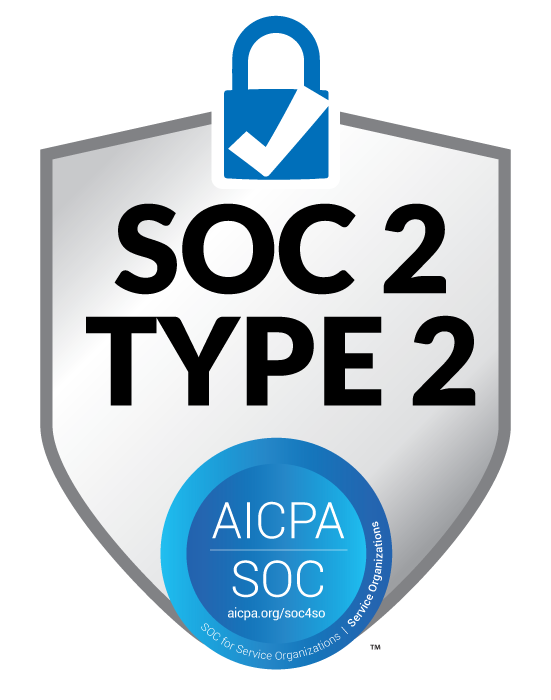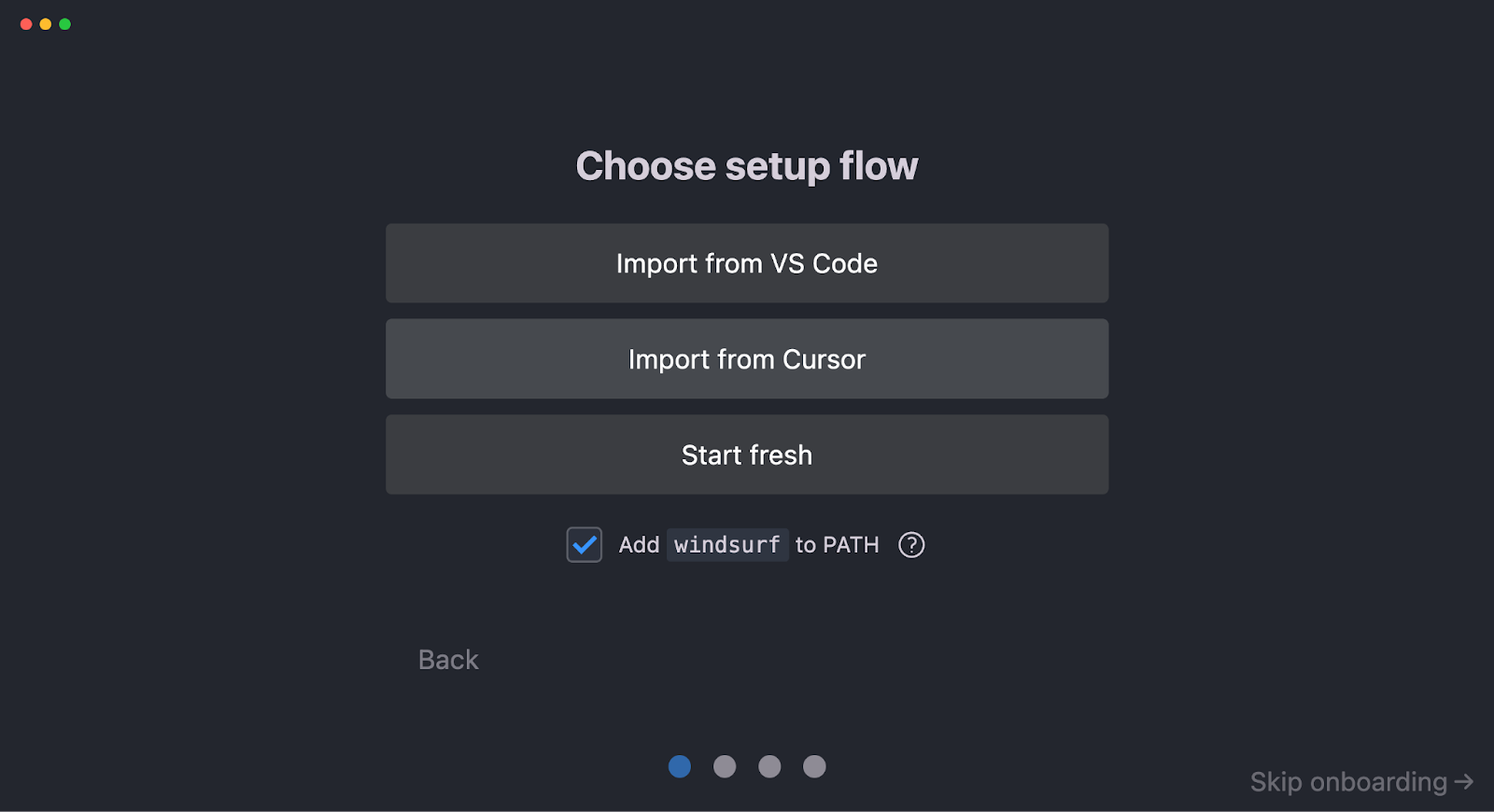Windsurf vs Cursor: AI IDE comparison
Windsurf and Cursor are AI IDEs. Windsurf is better for enterprise teams and large codebases because of advanced security, proprietary Fast Context and SWE-1.5 models, AI-powered Codemaps, and deep context understanding. However, Cursor is more suitable for smaller development projects. This page compares features, pricing, and performance.
What is Windsurf?
Windsurf was the first IDE to have an integrated agent, beyond simple autocomplete. It is now developed by Cognition, the team behind Devin. Windsurf features proprietary models including SWE-1.5 (13x faster than Sonnet 4.5) and Fast Context for rapid codebase understanding, plus AI-powered Codemaps for visual code navigation.
What is Cursor?
Cursor is a popular AI-powered IDE based on VSCode. It is built by Anysphere. Cursor provides autocomplete and a coding assistant powered by 3rd party models.
Trusted by over a million developers including teams at
Quick comparison: Windsurf vs Cursor
When comparing Windsurf vs Cursor at a high level, Windsurf is the more affordable option at $15/month compared to Cursor's $20/month, while simultaneously providing more AI agent usage, proprietary speed-optimized models (SWE-1.5, Fast Context), AI-powered code navigation (Codemaps), and robust enterprise support. Windsurf targets large codebases and enterprise teams needing advanced security and performance, while Cursor suits small teams on simple projects. Windsurf's unlimited AI agent access versus Cursor's usage limits is crucial for heavy AI users. Windsurf's exclusive features like 13x faster inference with SWE-1.5, 10x faster context retrieval with Fast Context, and visual code understanding with Codemaps provide exceptional value that Cursor cannot match.
Integrations, Deployment & Tooling Ecosystem:Windsurf vs Cursor
Integrations, deployment, and tooling ecosystem reveal Windsurf's flexibility advantage in the Windsurf vs Cursor comparison. Windsurf offers plugins for 40+ IDEs including JetBrains, Vim, NeoVim, and XCode, while Cursor restricts users to using Cursor, which is a VSCode fork. Both support MCP, but only Windsurf offers admin controls for enterprise requirements. This extensive tooling ecosystem provides superior compatibility and makes Windsurf adaptable to diverse development environments and Git workflows.
Pricing and Value Proposition: Windsurf vs Cursor
At every tier, Windsurf offers more competitive pricing while delivering superior features. Individual developers pay $15 monthly for Windsurf versus $20 for Cursor, a 25% savings that becomes more significant when considering Windsurf's unlimited usage of its SWE-1 model. Cursor's alternative $200 monthly plan provides 20x usage, but many developers find this cost prohibitive compared to Windsurf's straightforward unlimited access. When evaluating Windsurf vs Cursor for teams, the price difference becomes even more pronounced: $30 per user monthly for Windsurf Teams versus $40 for Cursor Teams. The enterprise tier comparison shows Windsurf starting at $60 per user monthly with transparent pricing, while Cursor requires custom pricing negotiations. Both platforms offer two-week Pro trials, allowing developers to experience the Windsurf vs Cursor differences firsthand before committing. The combination of lower pricing and enhanced capabilities makes Windsurf particularly attractive for cost-conscious teams seeking maximum ROI from their AI coding tools.
Enterprise Readiness: Windsurf vs Cursor
Enterprise readiness separates Windsurf vs Cursor more dramatically than any other category. For organizations operating in regulated industries or handling sensitive data, the Windsurf vs Cursor decision is straightforward. Windsurf offers comprehensive compliance certifications including ZDR, SOC 2, HIPAA, FedRAMP/DOD, ITAR, RBAC, and SCIM, while Cursor provides only SOC 2 certification. Healthcare organizations requiring HIPAA compliance, government contractors needing FedRAMP authorization, or defense industry companies subject to ITAR regulations will find Cursor inadequate for their security requirements. Windsurf also provides custom deployment options and white-glove support featuring dedicated account teams, live training sessions, and 24/7 assistance. This enterprise-grade support infrastructure doesn't exist in Cursor's offering. Most importantly, Windsurf is specifically optimized for large enterprise codebases, with architecture designed to handle millions of lines of code efficiently. When companies evaluate Windsurf vs Cursor for enterprise adoption, the security certifications, deployment flexibility, support infrastructure, and codebase optimization make Windsurf the only viable option for organizations with serious enterprise requirements.
Windsurf: Certifications & Awards

SOC 2 Type II
Verified security, trusted by developers and teams
FedRAMP High
Verified security, trusted by developers and teams

HIPAA Compliance
Verified protection for healthcare-related code and data

RedPoint InfraRed 100
Top private companies in cloud infrastructure today

Forbes AI 50
Most promising AI companies of the year

Newsweek's Greatest Startup Workplaces
America’s boldest startup teams and cultures

Inc. Best in Business
Leaders driving outcomes, innovation, and impact

Fast Company’s Next Big Things in Tech
Disruptive businesses shaping the tech landscape

Gartner Magic Quadrant
Analyst-ranked in critical AI code assistance
"We are pleased to induct Windsurf into the JPMorganChase Hall of Innovation. Windsurf has demonstrated a novel approach to generative AI for software development, enabling our developers to quickly become productive on new and heritage codebases, iterate on new capabilities, and focus on delivering business value."
Sandhya Sridharan
Global Head of Engineers' Platform & Integrated Experience, JPMorgan Chase
Speed and Performance: Windsurf vs Cursor
Speed and performance metrics provide quantifiable data points in the Windsurf vs Cursor evaluation. Windsurf's Fast Context feature, powered by SWE-grep and SWE-grep-mini models, delivers context retrieval 10x faster than frontier models like Claude Sonnet while maintaining accuracy. This specialized subagent uses highly parallel tool calls (8 per turn) and completes searches in 4 turns, dramatically reducing the time spent gathering context. Windsurf's proprietary SWE-1.5 model achieves near-frontier coding performance at 950 tokens/second—13x faster than Sonnet 4.5 and 6x faster than Haiku 4.5. For codebase understanding, Windsurf's Codemaps feature generates AI-annotated visual maps of code structure, powered by SWE-1.5 and Sonnet 4.5, helping developers quickly onboard to complex codebases. These maps show grouped and nested code sections with precise line-level linking, trace guides, and visual diagrams—capabilities Cursor lacks entirely. The large codebase handling optimization further differentiates Windsurf vs Cursor. Windsurf is specifically engineered for enterprise-scale projects with millions of lines of code, employing sophisticated indexing and retrieval mechanisms. Cursor performs adequately on smaller codebases but struggles with scalability. For teams working on microservices architectures, monolithic applications, or projects with extensive legacy code, the Windsurf vs Cursor performance comparison clearly favors Windsurf's purpose-built enterprise capabilities and proprietary speed-optimized models.
User Experience & Onboarding: Windsurf vs Cursor
User experience and onboarding differ significantly between Windsurf vs Cursor. Both offer two-week Pro trials for evaluation. Windsurf provides an "Import from Cursor" and "Import from VSCode" migration tool, and Cursor provides an "Import from VSCode" tool. Enterprise customers receive white-glove support including dedicated account teams, live training sessions, and 24/7 assistance. Windsurf maintains a consistent experience across 40+ IDEs, while Cursor requires the use of Cursor IDE, which means users have to adapt to VSCode-style workflows exclusively. This consistency in Windsurf reduces the learning curve for teams using JetBrains, Vim, or other development environments.
Code Completion & Editing Assistance: Windsurf vs Cursor
Code completion and editing assistance show both platforms' strengths in the Windsurf vs Cursor evaluation. Both provide multi-tab autocomplete with intelligent code generation, inline AI assistance for terminal and editor, and chat mode. However, Windsurf delivers significant advantages through proprietary innovations. The Fast Context feature, powered by SWE-grep models, retrieves relevant code context 10x faster than traditional agentic search by using 8 parallel tool calls per turn across only 4 turns—dramatically reducing wait time before code generation begins. Windsurf's Codemaps feature provides AI-annotated visual maps of code structure that help developers understand complex codebases before making changes, with precise line-level navigation, trace guides explaining code relationships, and visual diagrams. Cursor lacks equivalent code understanding tools. Windsurf's "Vibe and Replace" feature handles massive multi-file refactoring operations involving hundreds of files simultaneously, a capability Cursor cannot match. Windsurf's agent-integrated browser allows sending logs and elements directly to the Cascade Agent, creating a tighter feedback loop for testing and previews. These advanced editing features, combined with proprietary speed-optimized models and AI navigation tools, make Windsurf more suitable for large-scale code modifications and complex multi-file refactoring scenarios.
Target Users & Use Cases: Which Should You Choose?
Windsurf serves enterprise teams working on large codebases as big as 100M+ lines requiring advanced security compliance like HIPAA, FedRAMP, or ITAR. Teams using various development environments benefit from Windsurf's plugins for JetBrains, Vim, and 40+ other IDEs, maintaining a consistent AI experience across their tooling. Projects involving massive multi-file refactoring capabilities need Windsurf's "Vibe and Replace" feature, Fast Context for rapid code search, and deep context understanding. Developers working with unfamiliar or complex codebases benefit from Codemaps' AI-annotated visual navigation that traces execution paths and groups related code sections. The SWE-1.5 model delivers near-frontier performance at speeds up to 13x faster than Sonnet 4.5, keeping developers in flow for both deep exploration and full-stack app development. Cross-functional teams where designers need to preview and share prototypes benefit from Windsurf's agent-integrated browser. Cursor suits small development teams of 1-5 developers working on simple to medium projects without compliance requirements, multi-IDE needs, or team collaboration requirements. Cursor's single-file editing focus and basic autocomplete and chat features are sufficient for developers who don't need advanced context understanding, proprietary speed-optimized models, or AI-powered code navigation tools. Solo developers benefit from Windsurf's lower pricing ($15/month) and unlimited features, though VSCode-exclusive developers may find Cursor adequate for basic use cases.
Migration to Windsurf from Cursor
- Download Windsurf for a free trial
- Click Import from Cursor.

